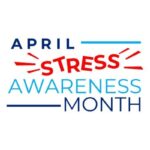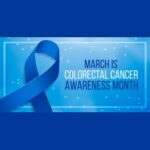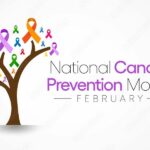ADS Treatment Services
Frequently Asked Questions
What are outpatient counseling, detox, and inpatient treatment? How are they different?

Outpatient counseling refers to a service that you receive by visiting a clinic for counseling sessions. These sessions might be an individual one-to-one session with your counselor or possibly a group session with other clients also enrolled in treatment. When the session is over, you leave the clinic and resume your regular daily activities (job, school, family).
Detox is a specialized service designed to help a person deal with withdrawal symptoms or other physical complications resulting from their substance abuse. Inpatient detox requires that the individual stay overnight in a hospital or detox facility. This detox stay may be for several days, and it allows detox staff to assist an individual in managing their withdrawal sickness and becoming physically stable again. Detox typically lasts from 2 to 5 days. Once a person is successfully detoxed, they are released in order to continue with their substance abuse treatment.
Inpatient treatment allows the substance dependent person to stay overnight in a counseling center or “rehab” facility for usually 1-4 weeks. The person lives at the inpatient center for that span of time. The person will sleep there, have meals there, and participate each day in a variety of educational classes & counseling sessions designed to help them deal with their addiction. Clients can usually have visitors at specified times during the week.
How much does substance abuse treatment cost?
The cost for treatment varies considerably from one treatment provider to the next. At ADS, clients who are unemployed, on limited income, or who have a number of dependents may qualify for State or Medicaid funding. If you qualify, this special funding pays for a large percentage of your treatment fees at ADS and sometimes all of your treatment costs. For those people who do not qualify for State or Medicaid funding, they may utilize insurance if they have it, or they may pay out-of-pocket for their ADS outpatient treatment services. Please call ADS for current prices on our self-pay outpatient treatment programs.
I am interested in ADS’ outpatient treatment services. How do I get enrolled?
 The first step is to call ADS to schedule an intake appointment or submit our online screening form. When you come for your appointment, a substance abuse counselor will review with you your substance problem and talk with you about your treatment options. After this initial interview, you are free to begin treatment with ADS. If you need detox or inpatient treatment, the ADS counselor can help get you referred to a program that can provide you with those services.
The first step is to call ADS to schedule an intake appointment or submit our online screening form. When you come for your appointment, a substance abuse counselor will review with you your substance problem and talk with you about your treatment options. After this initial interview, you are free to begin treatment with ADS. If you need detox or inpatient treatment, the ADS counselor can help get you referred to a program that can provide you with those services.
Will I be drug tested or asked to submit to a breathalyzer?
Yes. ADS uses both drug testing and breathalyzers administered on a random basis. These tests are used to help clients see how they are progressing with their treatment and to identify problem areas that may need special attention.
Who can find out about my treatment? Can anyone get a copy of my drug test results?
Your treatment at ADS is private & confidential as mandated by Federal law. No one can receive information about your treatment or your drug test results unless you provide written permission for this information to be released. You control who can receive information about your substance abuse treatment.
What is counseling like? Can my family member come with me?
Counseling sessions are meant to help you learn new ways to stay drug and alcohol free. You are educated on addiction & recovery and invited to learn new coping strategies that can help you become more comfortable with sobriety. What you and your counselor discuss is kept private. Your counselor will help you identify what goals are most important to you and what you want to achieve by coming to treatment. In individual counseling, you and your counselor can talk about anything that is important to you. In group counseling, you are free to address a variety of issues while receiving support and participating in treatment with others who are also enrolled in services.
You may bring your family member or a friend (or anyone that you choose) to your individual counseling sessions. However, these supports cannot attend your group sessions. Only enrolled clients may attend a group session. If you have a family member or friend with you during a group, they are free to wait for you in the lobby until the group is over.
I have a psychiatric diagnosis along with my substance abuse problem. Can ADS help me with that too?
Yes. ADS provides limited psychiatric services to help clients deal with depression, anxiety, PTSD and other co-occurring disorders. These psychiatric services include evaluation and medication therapy for clients enrolled in treatment with ADS. Upon completion of ADS outpatient services, ADS clinical staff will help the client transfer their psychiatric services to another local provider.
What happens if I relapse (drink or use) while attending treatment? Will I be discharged?
Any episode of drinking or using during treatment will be discussed with your primary counselor and possibly the ADS treatment team. ADS is here to help you! A fundamental goal of treatment is to examine one’s substance problem and to explore the benefits of abstinence from illicit substances. At ADS, relapse is treated as a learning experience. The emphasis is on teaching you ways to avoid relapse and supporting you in learning to become comfortably alcohol and drug free. A focus of treatment is learning new skills & approaches in order to reduce one’s risk of drug/alcohol relapse. If an individual continues to use during treatment, then they will eventually be recommended for a higher level of care. If ADS cannot provide that higher level of care, then we will help refer you to the appropriate program.
How long will I be in treatment?
An individual’s length of time in treatment depends on several factors including their personal needs & goals, the specific program they are attending, and the individual’s progress with treatment. Generally speaking, ADS’ outpatient treatment programs range from 2 months to 6 months. However, some clients may choose to remain involved beyond 6 months.
The opioid treatment program is a longer term program that progresses in phases. Opioid dependent persons are typically involved in the opioid treatment program for a minimum of one year, and often longer.
Who will I see when I come for counseling?
Each client in treatment is assigned a primary counselor. This primary counselor is the person who will usually provide your individual counseling sessions, and also the person who will assist you with referrals, letters, or other special needs. You may also have a separate group counselor. All ADS clinical staff are credentialed and qualified to provide treatment services.
Is ADS a licensed or accredited treatment facility?
Yes. ADS has a facility license issued by the NC Division of Health & Human Services, and we are fully CARF accredited. In addition, ADS is an approved Medicaid services provider, and our opioid treatment program is approved by SAMHSA, the United States DEA, numerous North Carolina Local Management Entities, and the North Carolina State Methadone Authority.









